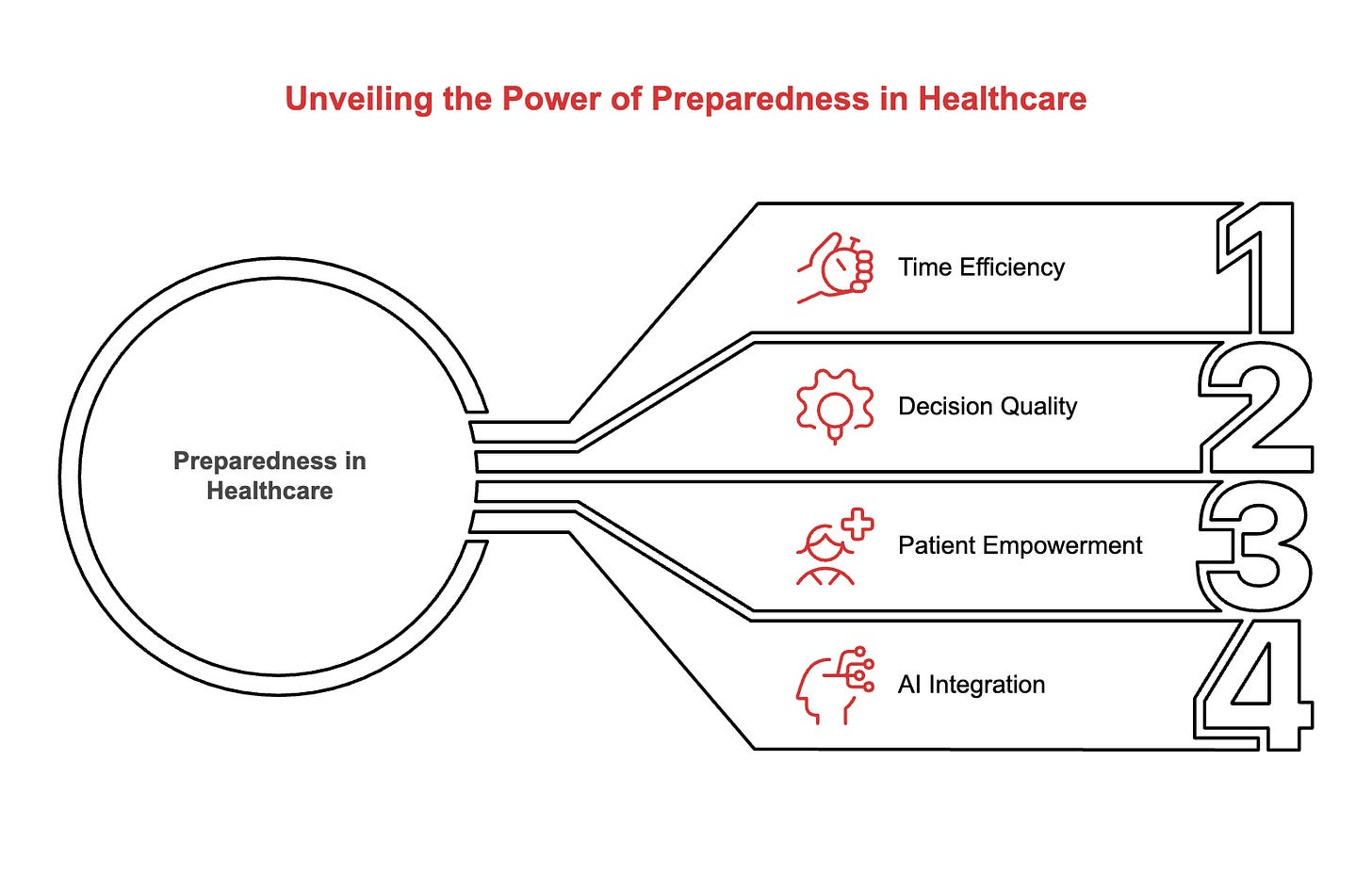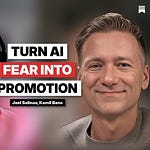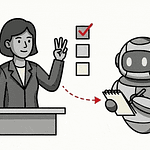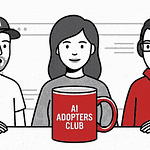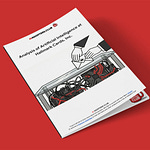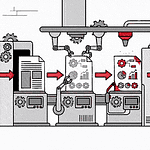
Hey Adopter,
You walk into a meeting unprepared. Again.
Ten minutes with your VP to pitch the new process. Fifteen minutes with the client to discuss scope changes. Twenty minutes with your boss for a quarterly check-in. You know these conversations matter. You’re winging it because you had seventeen other things to handle first.
Steve Brown had a worse version of this problem. Ten minutes per month with his oncologist to make treatment decisions. For cancer. No do-overs.
His solution: spending two hours with AI before each appointment, rehearsing the conversation until he knew exactly which questions mattered. That preparation pattern caught a misdiagnosis multiple specialists missed and surfaced a treatment alternative that put him in complete remission.
CureWise turned that into a system now used by other cancer patients. But the preparation pattern works for any meeting where the stakes are high and the time is short.
Why ten minutes breaks most conversations
Brown’s oncologist isn’t lazy. Shortage of oncologists, rising cancer rates. Same reason your VP is triple-booked. Everyone has more decisions than time to think through them.
Default mode is shallow. Quick check-in, defer hard questions to “next time.” Nothing gets resolved.
Brown couldn’t afford that. Cancer grows exponentially. Delaying the right decision by three months changes survival odds.
The pattern: don’t show up asking vague questions. Show up testing specific hypotheses.
“Do you think this treatment will work?” wastes time. “My genomic report shows these three mutations. The literature suggests these drugs target them better than standard protocol. What am I missing?” changes the conversation.
His doctors didn’t have time to parse his 15-page genomic report. He did that work beforehand with AI. Then used the appointment to validate his conclusions and catch blind spots.
One appointment, his AI prep surfaced a drug alternative based on his specific tumor mutations. Mayo Clinic agreed. Protocol switch followed. Complete remission.
That doesn’t happen if you show up asking “what should we do next?”
Which raises the question: how do you prepare at that level without a PhD in AI?
The preparation pattern anyone can use
You don’t need to code multi-agent systems. You need to stop winging important conversations.
Here’s how you could adapt Brown’s pattern:
Before your next high-stakes meeting
Step 1: Dump context into AI Open ChatGPT. Paste everything relevant. Project background, past decisions, constraints, what failed, what’s at stake. Give it the full picture.
Step 2: Ask for three conflicting recommendations Prompt: “Give me three different approaches to this problem. Make them genuinely different. Then argue why each one could be the right choice.”
This shows you the decision space instead of jumping to one answer.
Step 3: Flip the perspective Prompt: “I’m leaning toward option two. Now argue against it. What am I not seeing? What could go wrong?”
This catches your blind spots. Brown used multiple AI agents arguing. You do a simpler version by prompting different positions.
Step 4: Identify your knowledge gaps Prompt: “What information am I missing that would change the decision? What should I ask in the meeting?”
Now you have specific questions instead of vague concerns.
Step 5: Rehearse the conversation Prompt: “I have ten minutes with the decision-maker. Here’s what I know, what I’m recommending, my questions. How should I structure this?”
Brown spent two hours on this before each oncologist appointment. You can do it in thirty minutes before your next project review.
The difference: you walk in knowing what matters, what’s uncertain, and which questions unlock the decision.
Theory is one thing. Here’s what happens when people actually do this.
Where this actually changes outcomes
Lisa Booth is using CureWise for metastatic breast cancer treatment. She’s not a programmer. She dumps context, gets multiple perspectives, identifies gaps, prepares specific questions. Then shows up to specialist appointments with focus. Her doctors appreciate it. They discuss actual treatment trade-offs instead of explaining basics.
Same pattern in business:
Project approval: “Here are three approaches, cost-benefit on each, what I’m missing from engineering. Which constraint should drive the decision?”
Vendor evaluation: “I’ve mapped our workflow to these three options, where each breaks down. What am I not seeing about implementation risk?”
Performance review: “Here’s what I accomplished, where I struggled, three skills I could develop. Which creates most value for the team?”
Every one changes the meeting. Your boss doesn’t do your thinking. They validate your reasoning and fill your gaps. Better decisions faster.
Which compounds over time. Better questions lead to better answers. Better answers lead to better decisions. Better decisions change who gets asked to the next meeting.
Why this makes you indispensable
The person who asks the right questions becomes the one people want in the room.
Not because you have all the answers. Because you’ve done the work to frame the decision clearly. You’ve thought through alternatives. You’ve identified what’s uncertain.
Brown’s oncologist has limited time. Patients who show up prepared get more value from those ten minutes. Same applies to your VP, your client, your boss.
This is how AI makes you better at your job. Not by replacing you. By giving you leverage to prepare at a level that used to take a team of analysts.
Six hours manually researching vendors, reading case studies, building spreadsheets. Or forty minutes with AI getting to the same synthesis, then validating with your network.
You still need judgment. But you show up sharper.
Brown caught his cancer because his AI preparation surfaced one test his doctors hadn’t ordered. You won’t save your life. But you might save your project, your client relationship, or your promotion by asking the question nobody else prepared.
Companies that scale AI aren’t buying expensive enterprise tools. They’re the ones where individuals figured out how to prepare better, move faster, ask smarter questions. Then that behavior spreads.
Start tomorrow. Take your next important meeting. Spend thirty minutes preparing with AI instead of walking in cold.
Adapt & Create,
Kamil




